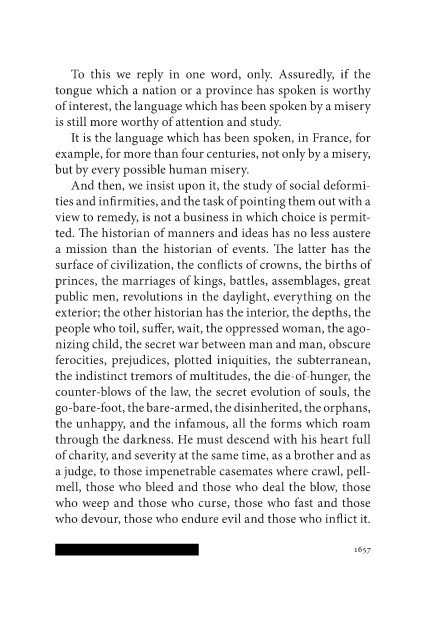Page 1657 - les-miserables
P. 1657
To this we reply in one word, only. Assuredly, if the
tongue which a nation or a province has spoken is worthy
of interest, the language which has been spoken by a misery
is still more worthy of attention and study.
It is the language which has been spoken, in France, for
example, for more than four centuries, not only by a misery,
but by every possible human misery.
And then, we insist upon it, the study of social deformi-
ties and infirmities, and the task of pointing them out with a
view to remedy, is not a business in which choice is permit-
ted. The historian of manners and ideas has no less austere
a mission than the historian of events. The latter has the
surface of civilization, the conflicts of crowns, the births of
princes, the marriages of kings, battles, assemblages, great
public men, revolutions in the daylight, everything on the
exterior; the other historian has the interior, the depths, the
people who toil, suffer, wait, the oppressed woman, the ago-
nizing child, the secret war between man and man, obscure
ferocities, prejudices, plotted iniquities, the subterranean,
the indistinct tremors of multitudes, the die-of-hunger, the
counter-blows of the law, the secret evolution of souls, the
go-bare-foot, the bare-armed, the disinherited, the orphans,
the unhappy, and the infamous, all the forms which roam
through the darkness. He must descend with his heart full
of charity, and severity at the same time, as a brother and as
a judge, to those impenetrable casemates where crawl, pell-
mell, those who bleed and those who deal the blow, those
who weep and those who curse, those who fast and those
who devour, those who endure evil and those who inflict it.
1657

